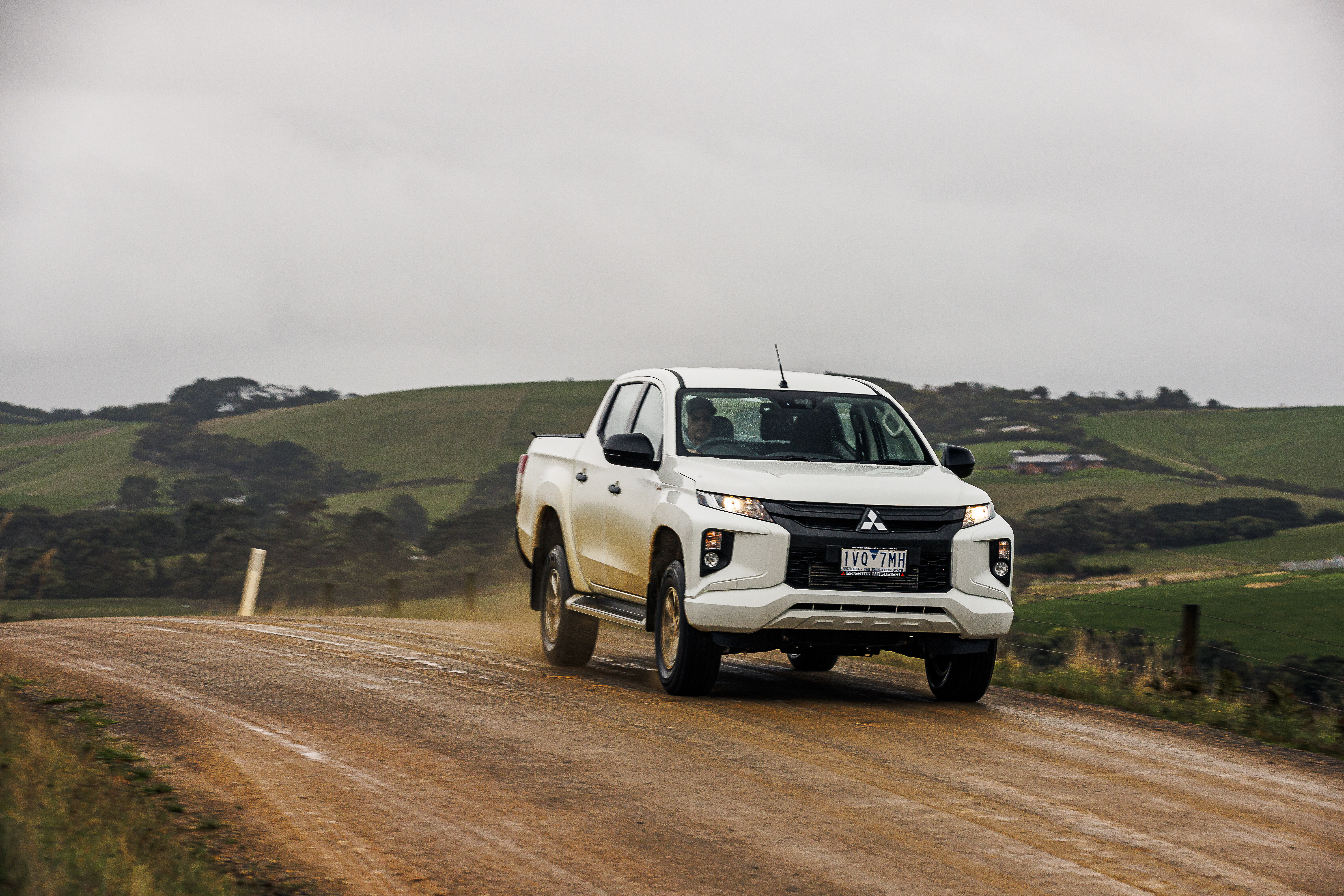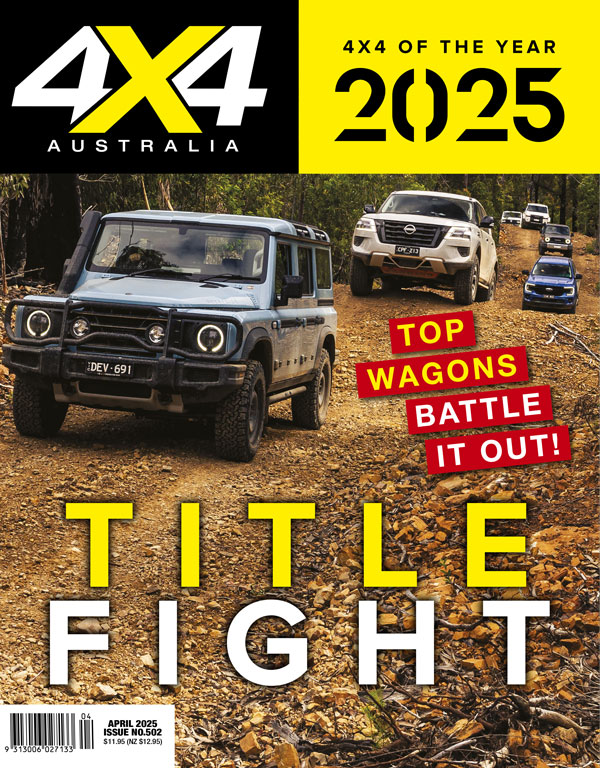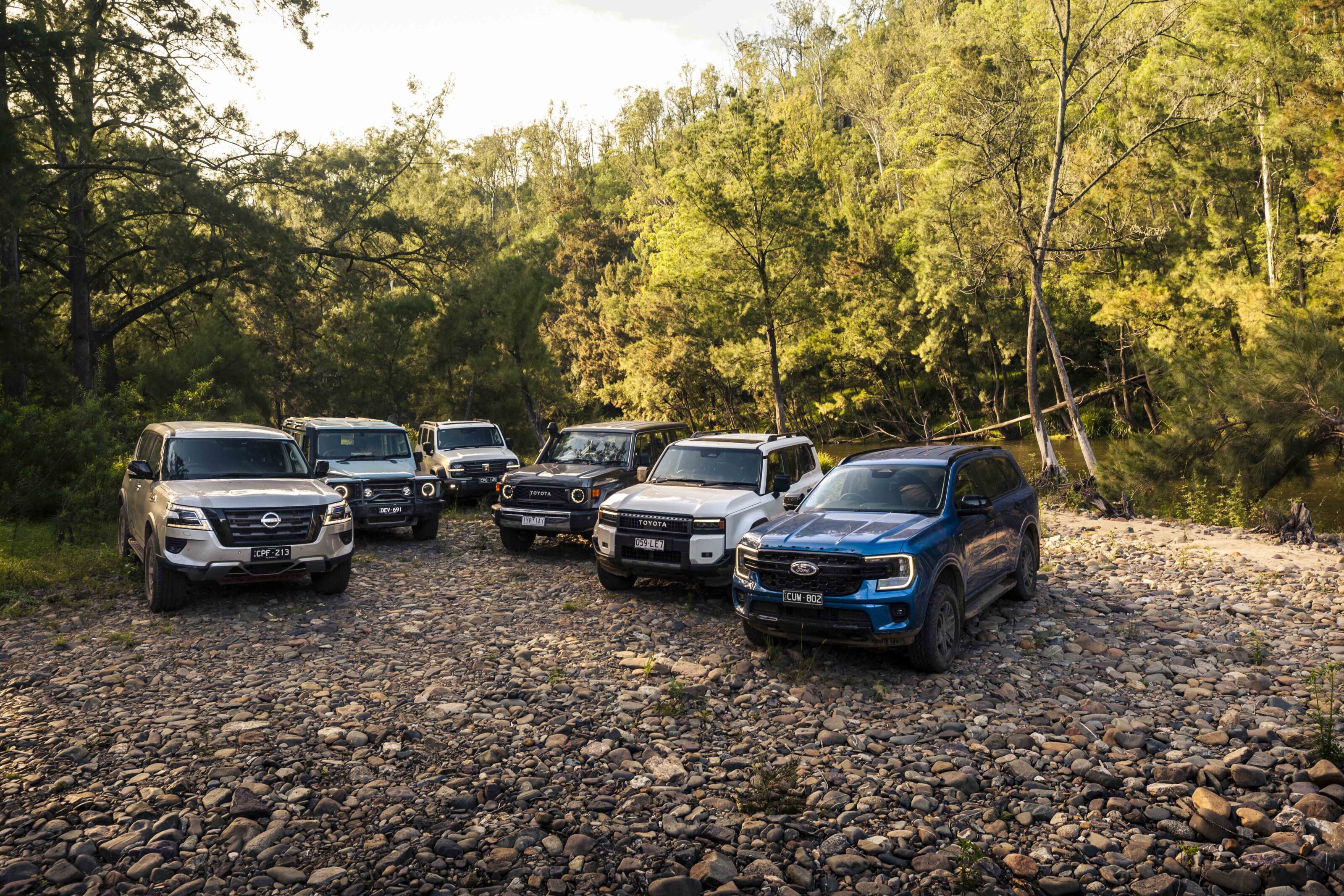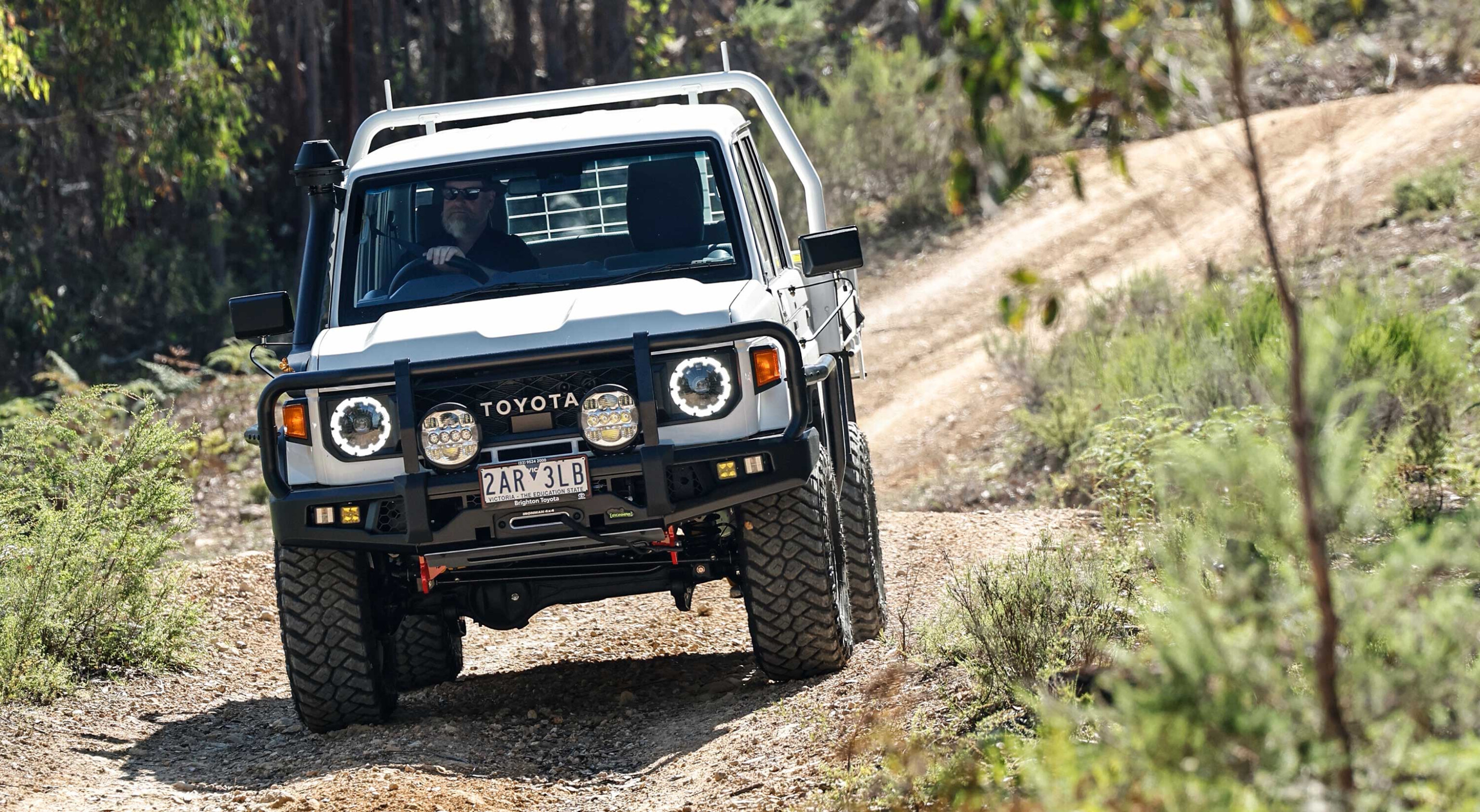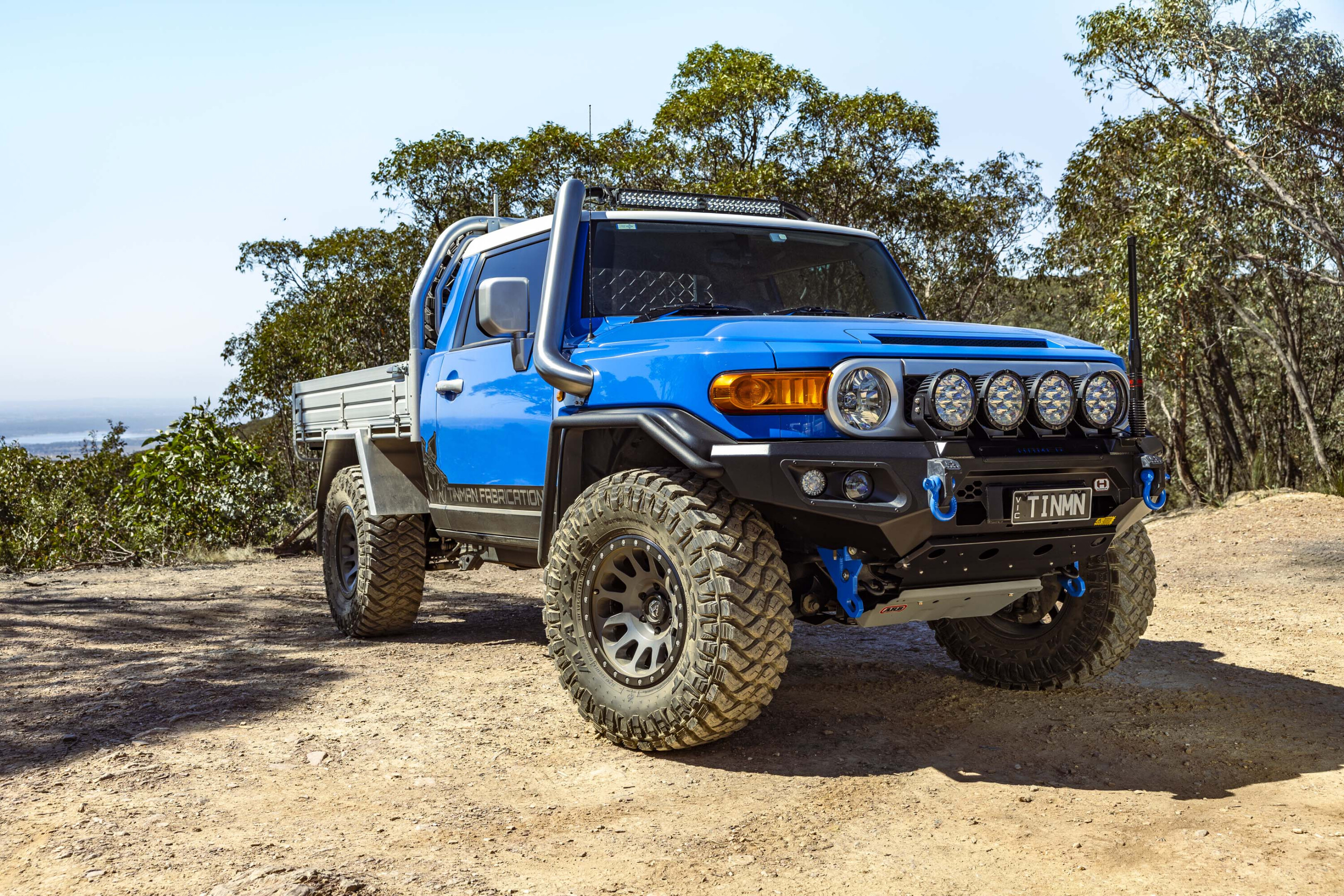Things we like
- Can’t beat the $46,190 price tag
- Increased payload capacity over the more premium GSR
- Well-matched drivetrain
Not so much
- Price means a compromise in several areas
- Interior is spartan and harkens to bygone days
- Misses out on some safety and 4x4 tech
There’s a compelling reason why the Triton is a perennial placegetter on the 4×4 sales charts: it offers exceptional value for money.
Take the GLX+ variant we had on our recent Mega Ute Test, which, at its sub $50K price point, butts heads with the budget trio from the halls of SssangYong, GWM and LDV. And it’s arguably a much better proposition.
Depart with $46,190 of your hard-earned and you’ll get a utilitarian all-rounder best-suited for work and farm duties but also adept at ferrying the family for a weekend away.
In saying that, owning the GLX+ as a day-to-day family hauler does encompass a generous list of compromises.
Drive
The entire Triton range is powered by Mitsubishi’s long-serving 2.4-litre turbo-diesel four-cylinder diesel engine, which in this GLX+ spec is mated to a six-speed automatic gearbox, generating 133kW at 3500rpm and 430Nm at 2500rpm in the process.
Well-matched to the powertrain, the transmission will rarely hunt for gears, more often than not finding the sweet spot despite occasional high-rev droning. On test, it sucked up 11.0 litres of diesel per 100km.
At this price point, diesel rattle is well-known to be prominent, but the GLX+ feels rather petrol-like in its demeanour, compared to some of its similarly-priced contemporaries.
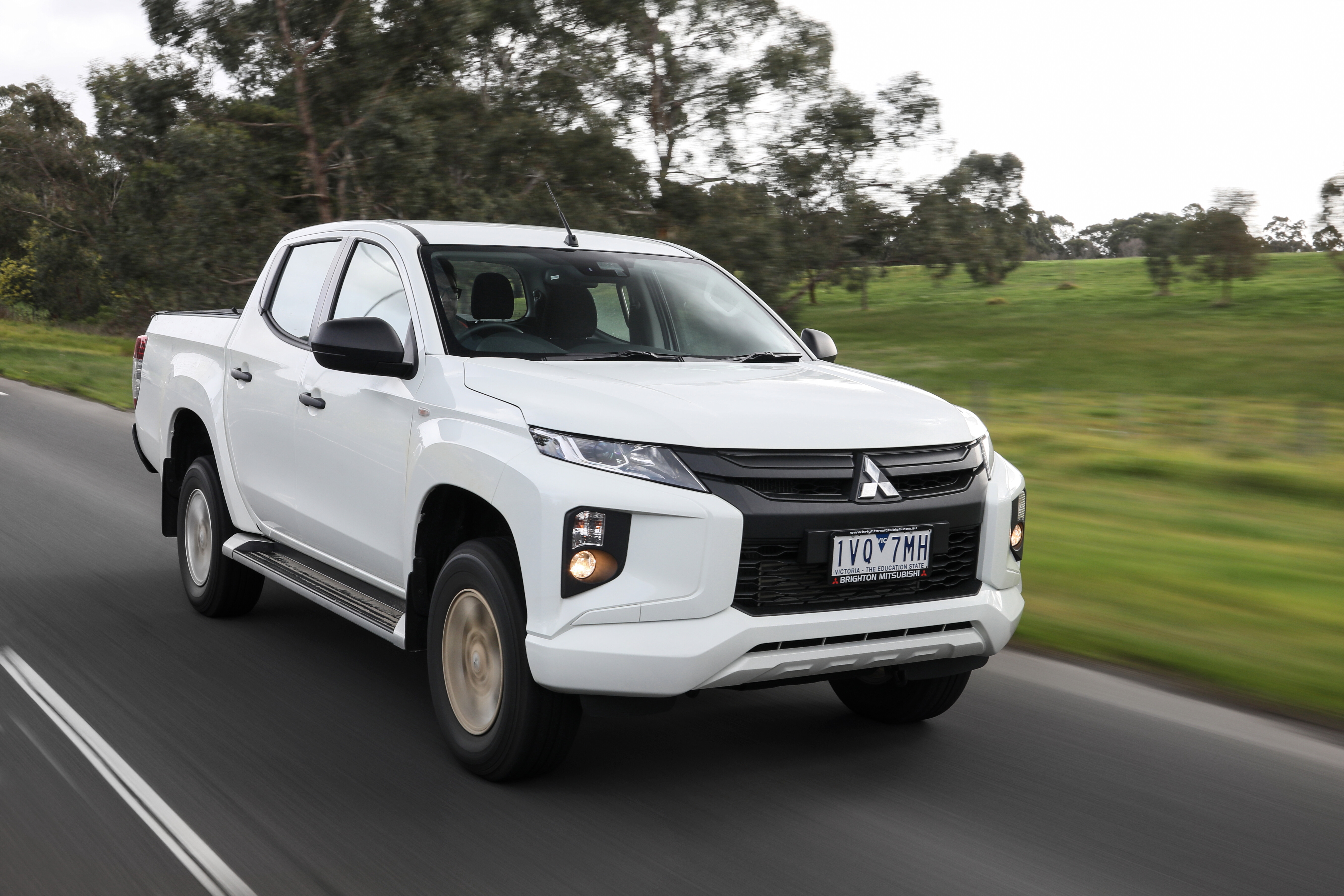
Fitted with leaf springs at the rear and coils up front, the GLX+ feels settled on both bitumen and mild dirt tracks, soaking up larger bumps with aplomb.
While proper off-roading was off-limits on this occasion (we didn’t get to activate the rear diff lock), we did point the Triton down a few damp dirt roads, and the hydraulically-assisted steering felt dialled in and well-connected to the rain-soaked terra firma, something which can’t be said of other utes in the around-$40K category … drive it back-to-back with the GWM Cannon-X and you’ll know exactly what we mean.
GLX+ models miss out on Mitsubishi’s Super Select II 4×4 system; instead relying on the more rudimentary Easy Select 4WD system to modulate between 2H, 4H and 4L via an easy-to-use rotary dial – flicking between 2H and 4H on the fly is a simple affair.
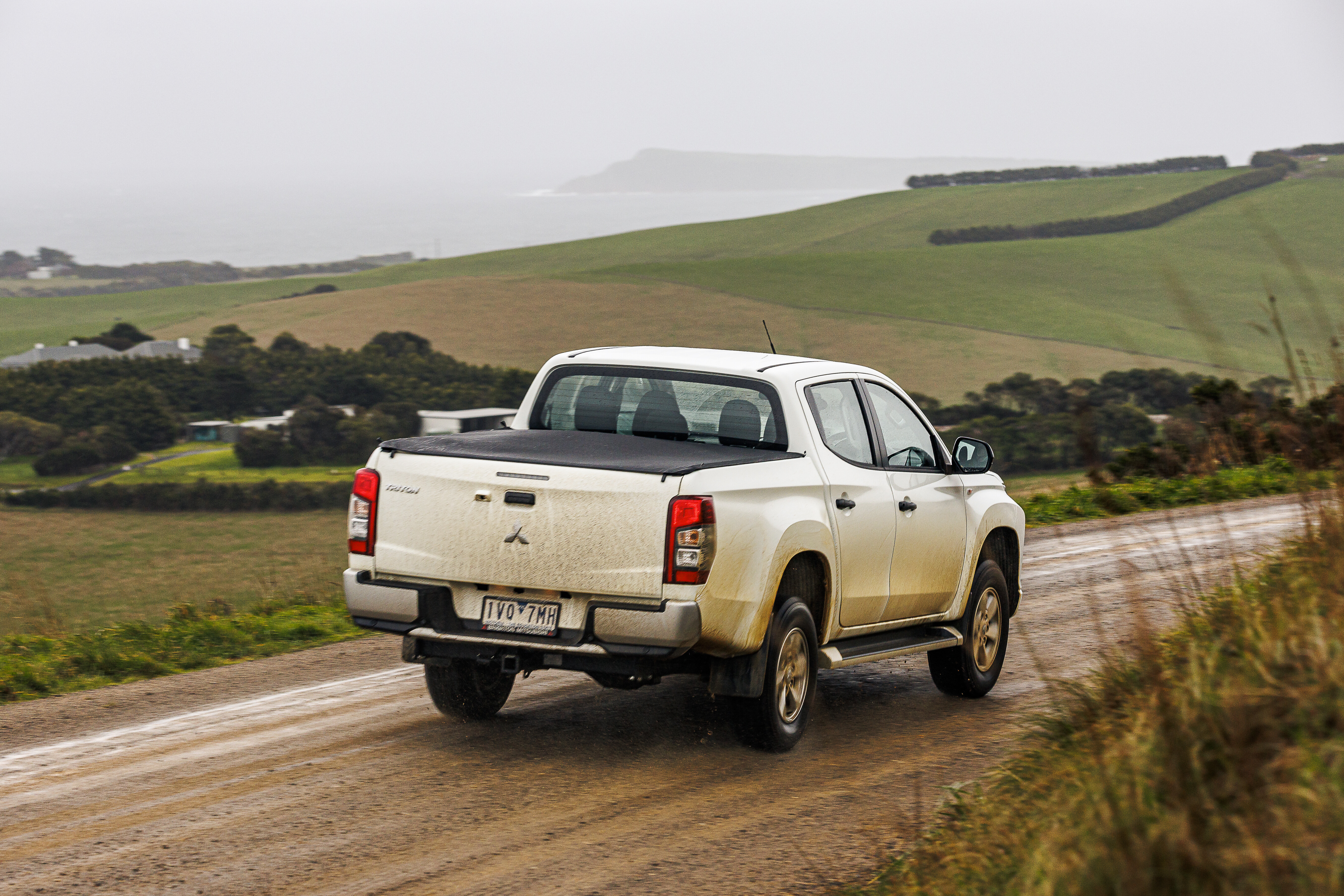
The GLX+ is also devoid of an Off-Road Mode selector, which adjusts engine output, transmission settings and traction control to best suit the terrain, be it Gravel, Mud/Snow, Sand or Rock. This is only available on GLS and GSR variants.
The GLX+ consists of a somewhat shallow ground clearance of 205mm, and approach, departure and rampover angles of 30, 22 and 24 degrees respectively.
From the factory, the GLX+ is fitted with 16 x 7-inch steel wheels inside 245/70R16 tyres. Opt for the GSR and you’ll get alloys in lieu of steel.
Interior
Where cost-cutting is most obvious is within the rather utilitarian cabin, which is forgivable considering the ute is targeted more at blue-collar tradies than families.
The steering wheel is plastic and feels cheap, the seats are cloth, and the trims and surroundings err more towards ‘thrifty’ than premium. Its single-zone air-conditioning system is almost unheard of with modern vehicles, as is the turnkey ignition – which some among us still prefer, mind you.
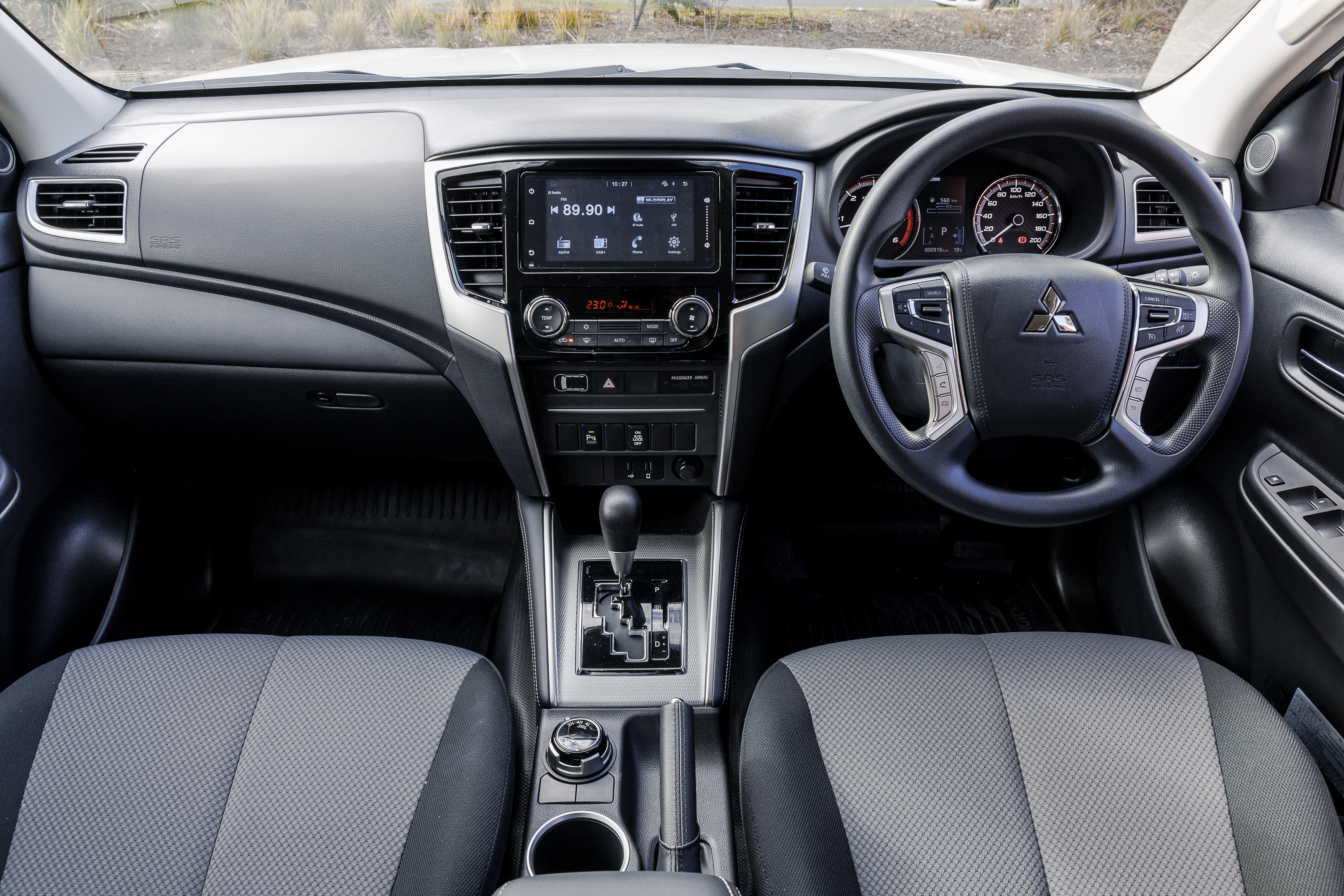
The infotainment system also drops the Triton back a few pegs, primarily because it’s outdated, slow to boot and Android Auto failed to connect on our test.
The touchscreen itself is small by modern standards – 7.0 inches – and the UI (user interface) is confusing in its layout and operation.
There’s an abundance of storage pockets and drink holders – big bottle holders in the doors – as well as two USB-A points and a 12-volt power port.
Practicalities
Despite these interior foibles, it’s important to remember the primary audience of this variant, and the lower-spec GLX+ makes plenty of sense as a work ute, be it for trade or farm duties.
It offers slightly more payload capacity than the more-premium GSR – 945kg versus 901kg – which may seem marginal but it’s nothing to sneeze at when every kilo matters.
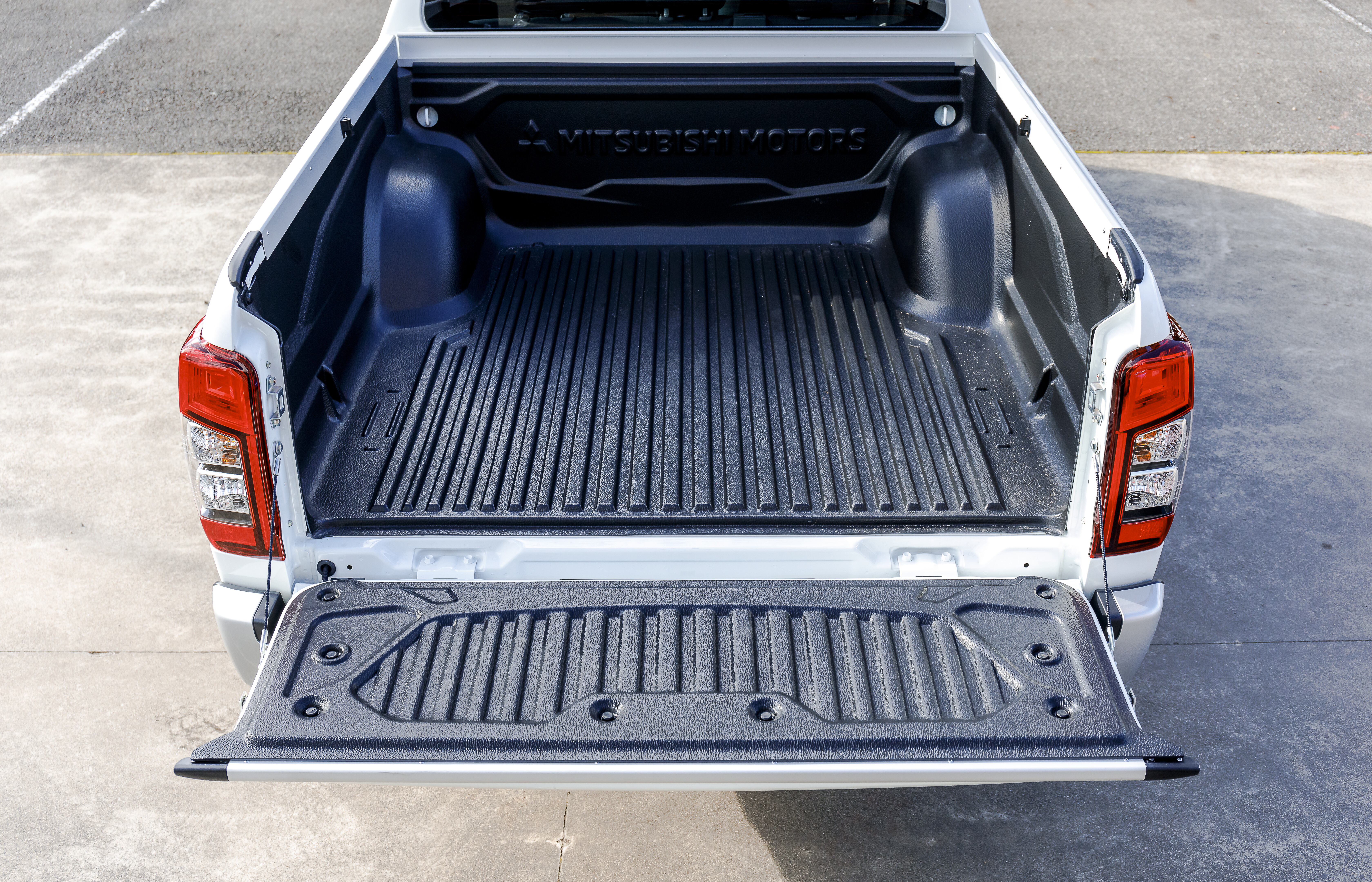
Coloured-coded tie-down points – four in total – are a nice touch, and while the soft tonneau can be de-robed quite easily, it is cumbersome to reattach. Thankfully, you won’t need to join the local 24/7 gym, as the cover does stretch over time.
The tub measures 1520mm (L) x 1470mm (W) x 475mm (H), with a modest 1085mm between the wheel arches.
The GLX+ records a 3100kg towing capacity, and a bedliner was fitted to our test vehicle.
Safety
The GLX+ shares its suite of safety equipment with the GLX, which means it comprises staples such as Lane Departure Warning, Forward Collision Mitigation with pedestrian detection, Emergency Brake Assist, Hill Start Assist, and Trailer Stability Assist.
It misses out on Hill Descent Control, Lane Change Assist, Rear Cross Traffic Alert, and Blind Spot Monitoring systems that are standard on the GSR.
Plus, it lacks the GSR’s Multi-Around Monitor and front parking sensors; rear sensors are standard on all models, though.
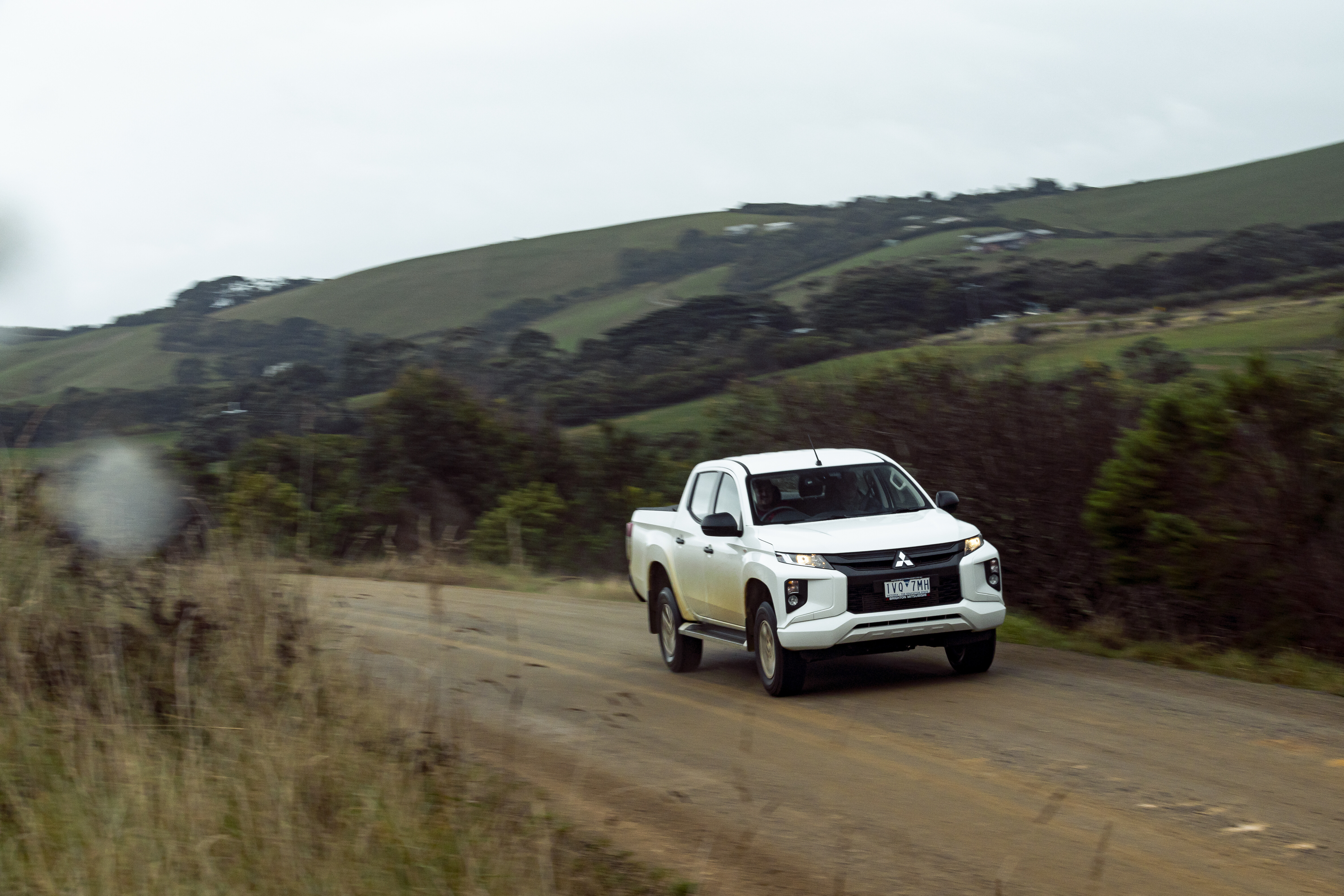
VERDICT
That it’s almost $10K cheaper than the GSR makes it a viable and enticing proposition, and it’s the spec we’d opt for to serve as our ute should we contemplate starting a landscaping business.
Forgo some of the nice-to-haves the GSR boasts and you’re still left with a great platform, albeit one with a stripped-back interior that does feel generations old.
However, overlook these shortcomings and the Triton GLX+ makes a lot of sense at this compelling price point.
2022 Mitsubishi Triton GLX+ specs
| Engine | 2.4L MIVEC turbo-diesel |
|---|---|
| Capacity | 2442cc |
| Compression ratio | 15.5:1 |
| Bore x Stroke | 86.0 x 105.1 |
| Transmission | 6-speed automatic |
| Poweru00a0 | 133kW @ 3500 |
| Torque | 430Nm @ 2500 |
| Front suspension | Double wishbone with coil springs |
| Rear suspension | Leaf springs (heavy duty) |
| Tyres | 245/70R16 111S RF |
| Kerb weight | 1955kg |
| GVM | 2900kg |
| Payload | 945kg |
| Towing capacity | 3100kg |
| Seating | 5 |
| Fuel tank | 75L |
| ADR fuel claim | 8.6L/100km |
| On-test fuel use | 11.0L/100km |
| Departure angle | 22.0 |
| Approach angle | 30.0 |
| Rampover angle | 24.0 |
| Ground Clearance | 205mm |
| Price | $46,190 |
Things we like
- Can’t beat the $46,190 price tag
- Increased payload capacity over the more premium GSR
- Well-matched drivetrain
Not so much
- Price means a compromise in several areas
- Interior is spartan and harkens to bygone days
- Misses out on some safety and 4x4 tech
We recommend
-
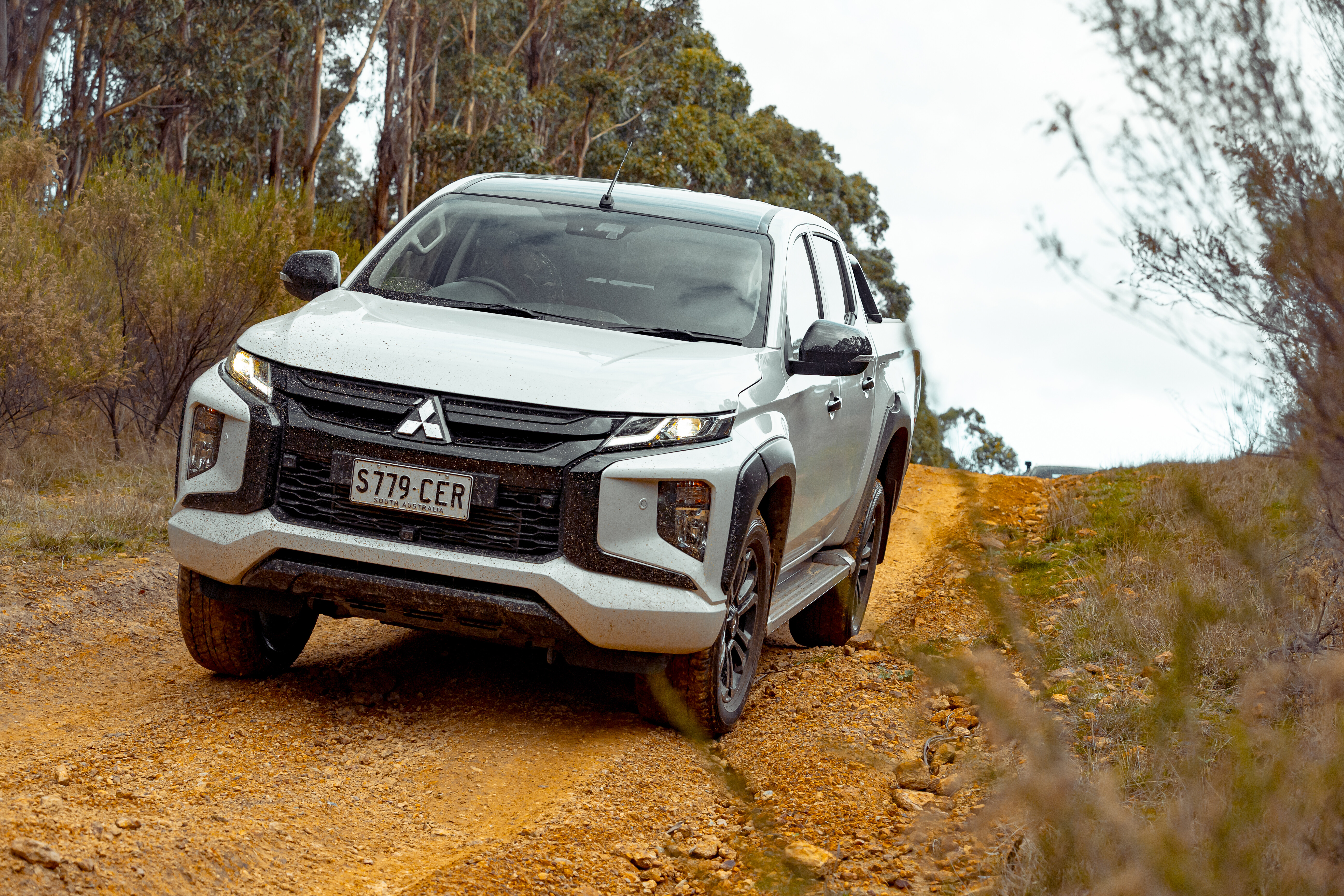 News
News2022 Mitsubishi Triton: Price increases for updated MY22.5
Mitsubishi updates its Triton line-up for the MY22.5
-
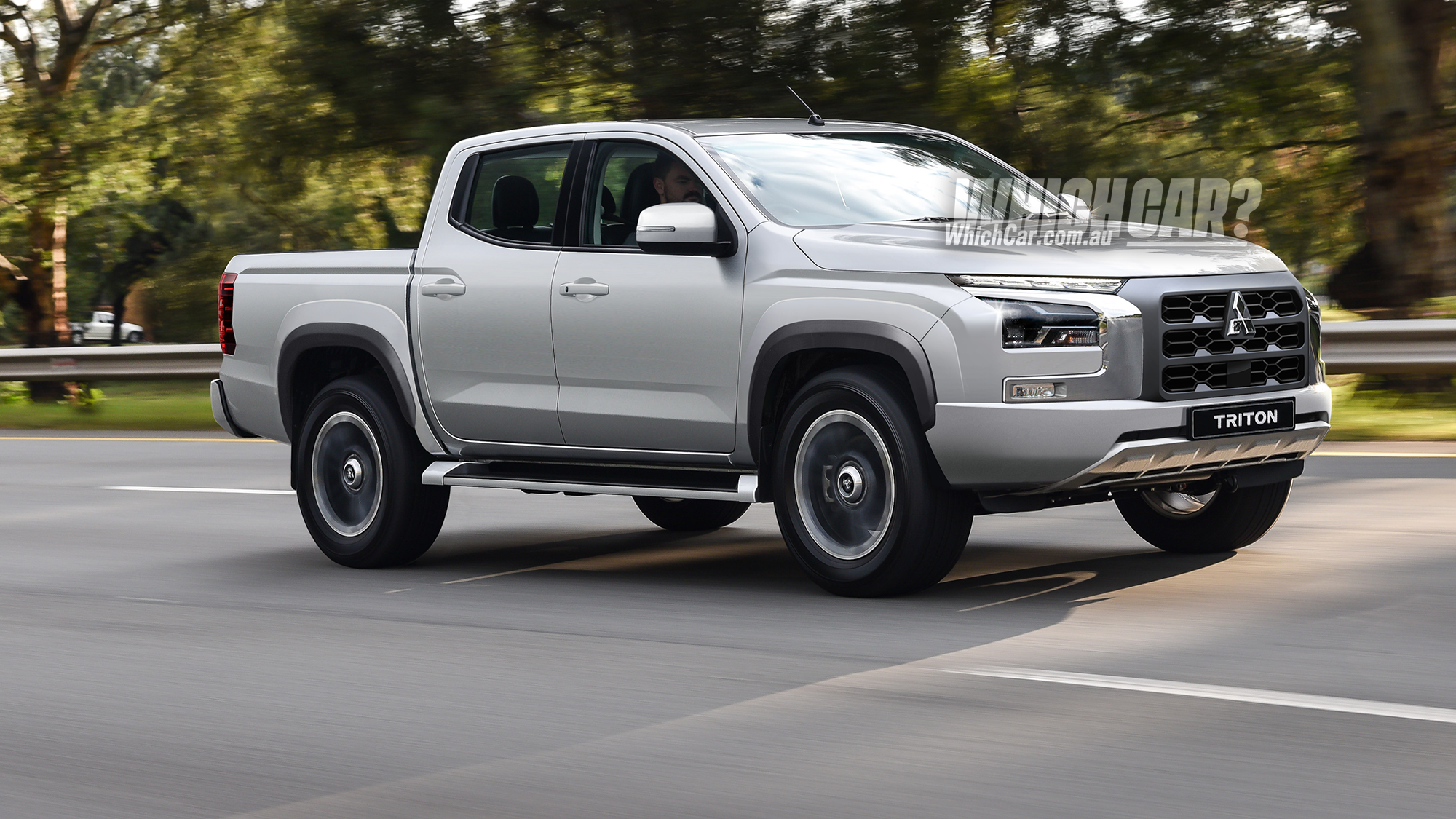 News
News2024 Mitsubishi Triton imagined and spied testing; set for July debut
The sixth-generation Mitsubishi Triton will share its platform with the Nissan Navara
-
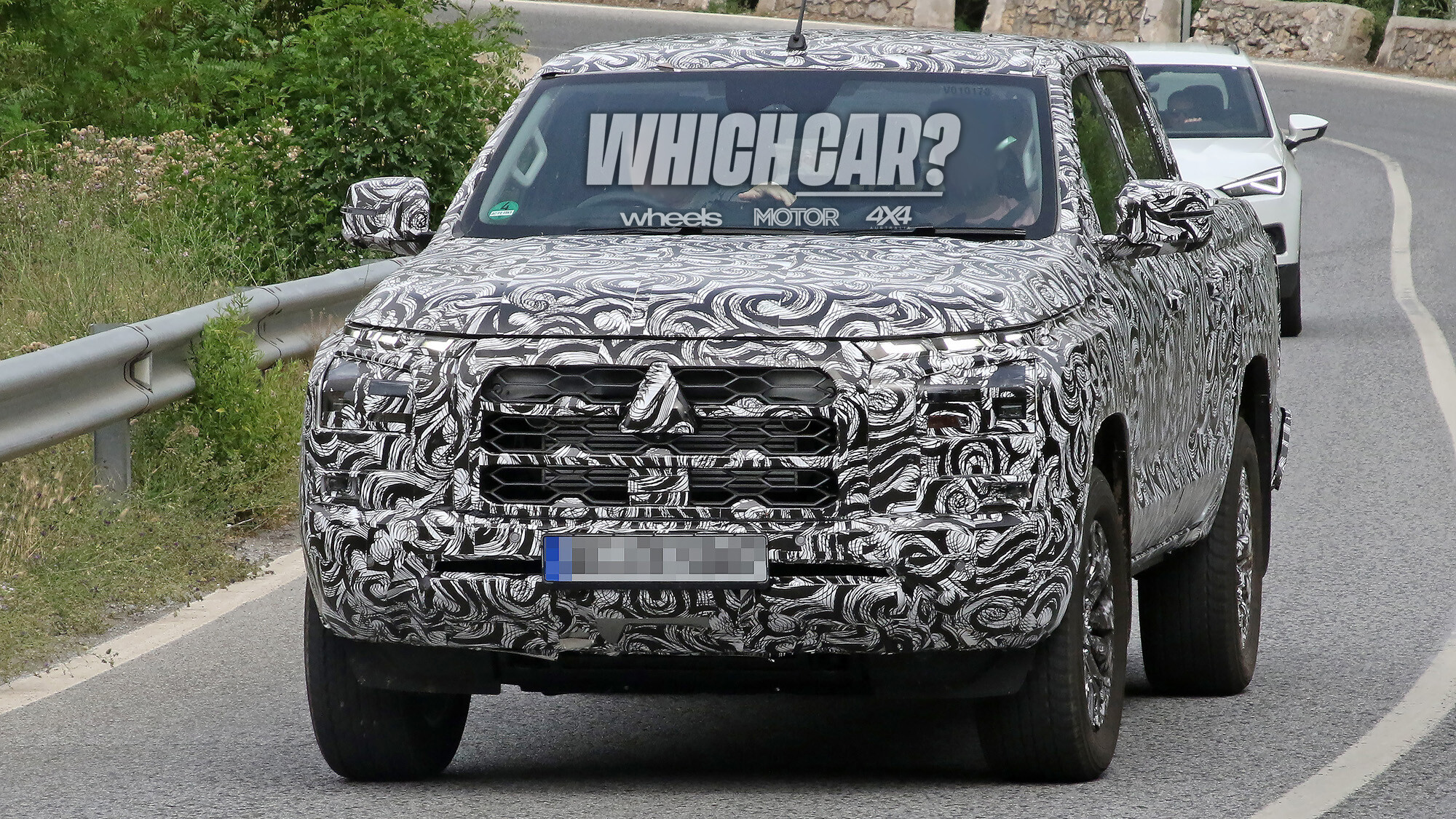 News
News2023 Mitsubishi Triton PHEV planned, full EV expected too
The next-generation Mitsubishi Triton could gain a modified version of the powertrain found in the plug-in hybrid Outlander, and an all-electric model could be coming


